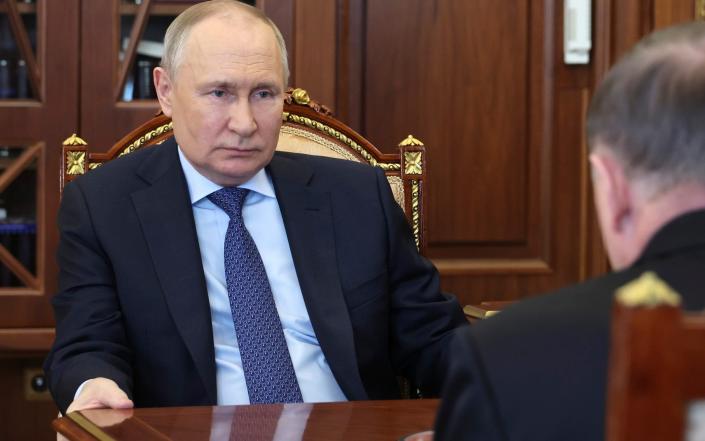
Vladimir Putin claims his forces have finally seized the entirety of what used to be the city of Bakhmut in the Donbas.
However, well over a year into what was meant to be a three-week lightning offensive, key questions remain unanswered about the state of Russia’s invasion.
Having committed so many resources to capturing Bakhmut, the Russian President has claimed a victory, but can it be repeated? And is the Russian army now a spent fighting force for the rest of the year?
Propaganda victory
Russian trolls and officials will undoubtedly spin the advance in Bakhmut into evidence of the might of the Russian army and that the Ukrainians can be defeated.
However, there is nothing in the time it has taken the Russian military or the cost in personnel (estimated, by the White House, to be 100,000 casualties since December alone, of which one fifth were killed) that speaks of an army that is in any way capable of continuing its slow advance or that has transformed itself into an efficient fighting force.
The truth, as we have seen in the overnight air attack on the city of Dnipro only hours after the declaration of victory, is that Russia confuses action with momentum.
Just doing military stuff on a battlefield does not constitute a sound campaign plan. Military action needs to be related, either by geography or purpose, in order to build any kind of momentum to break the opponent’s will or capacity to fight.
Problems with Russia’s command and control
The fight for Bakhmut has shown that Russian commanders cannot coordinate their disparate forces. Nor can they think up ways to inject elements of surprise and flexibility into their operations or show any regard for economy of effort; all vital military considerations.
If they take any lessons from Bakhmut at all – and it is a big ‘if’ given that the Russian army has rarely shown itself to be a self-critical organisation – they will reinforce the belief that flattening an area with artillery then pushing men forward at great cost to clear what remains is a winning tactic.
It is not, or at least it only can be if you have an unlimited stock of manpower and ammunition and a society that will tolerate the butcher’s bill. None of these are guaranteed anymore for Putin.
Russia’s next move
It is doubtful Russia has the capacity to mount a large advance.
Russia will claim that taking Bakhmut now clears the way to advance to bigger and more strategically important cities like Kramatorsk and Slovyansk. But they are over 20km away, and this exhausted and incoherent force of mercenaries, new conscripts and local militia won’t be there anytime soon.
The armoured vehicles are simply not there and the air cover so desperately needed to shield any ground manoeuvre is still waiting for Ukraine’s air defences to be emptied.
On this point, Russian commanders may be waiting a long time, given the degree of international support shown for Ukraine at the G7 meeting in Japan.
Was it worth the cost?
Russia chose to fight in Bakhmut for symbolism (Putin needed a victory) and internal politics (Yevgeny Prigozhin wanted to burnish the credibility of his outfit in the eyes of his boss in the Kremlin). Neither of these was worth the cost.
Geography can be an important reason to fight; battling for ground just because it is there, is not. Seizing a major air or sea port can be a vital action and worth the sacrifice. Capturing a small city that doesn’t really lead anywhere is not worth the effort.
Putin has hailed the Bakhmut effort a grand victory and has promised to shower medals all round.
But the truth is that it has been a largely meaningless endeavour, and the exhausted Russian army must now lick its wounds.

